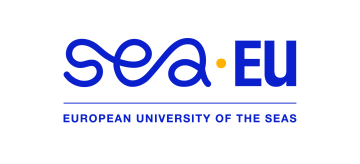ORCID ID: 0000-0001-9774-6164
Rafael Ángel Jiménez Gámez has a doctorate in Philosophy and Educational Sciences from the Universidad Nacional de Educación a Distancia (UNED). He worked as a primary education teacher from September 1972 to November 1983 in Ceuta and Arcos de la Frontera (Cádiz). Since December 1983 he has been a teacher in the Didactics Department of the University of Cádiz and a tutor in the UNED's Associated Centre in Cádiz. He is currently in charge of the Eduardo Benot Educational Research Group, included in the Andalusian Research Plan (HUM-230).
He has taught various subjects in the Area of Didactics and Basic School Organization for the training of Primary Education teachers from the 1983-1984 academic year to the present. Likewise, he has taught in the Degree in Psychopedagogy, in which the last generations of Secondary Education counsellors have been trained. On the other hand, he has taught General Didactics in the old Pedagogical Aptitude Course to train Secondary School teachers and an optional one in Intercultural Education in the current Master of Secondary Education
He began his research career in the field of the History of Education and the Curriculum. His first publications, several articles and two books, his dissertation and his thesis (Extraordinary Doctorate Award at the UNED and Essay Award from the Caja de Ahorros de Jerez, both in 1991) are in this field.
In the first part of the 90's he worked, within a project of the Andalusian Ministry of Education, on research into Teaching Practices, contributing papers to conferences on this subject in various national forums and aligning himself within the perspective of Action Research. Subsequently, and also subsidized by the Regional Government, it carries out a Qualitative Research project within a research group project on "The implementation of new technologies in the educational system". At that time, he also carried out some work on the Freinet methodology and reviews on the approaches to curricular research.
The next period, in the second half of the 90's, corresponds to the implementation of the degree in Psychopedagogy, within which he works in the field of Orientation Models, participating in various research and reflection works on the subject. Together with his colleague Ramon Porras Vallejo, he elaborated a manual of an important repercussion in this field.
Since 2002, she has been working in the field of immigration, interculturality and curriculum, having participated in congresses and given doctoral and master's degree courses, as well as ongoing teacher training in this area. In this last stage, he has directed several projects and participated as a researcher in the following lines:
¿ The reception mechanisms for students of immigrant origin in Andalusia for the teaching of the language of the curriculum. Likewise, in 2012, on the occasion of a stay at the University of Paris X Nanterre, he will carry out a comparative study of these devices in our country and France.
¿ The analysis of good practices in Intercultural Education.
¿ The school failure of Arab-Muslim students in the education system in the city of Ceuta.
He has participated in several innovation projects in the faculty, among which the one of bilingual teaching in French, language in which he has a B2 level, stands out
The research group HUM 230, directed by Professor Rafael Ángel Jiménez Gámez, is based in the Faculty of Education Sciences of the University of Cadiz. It has been working for more than 15 years in the field of education from a critical perspective. During the first years of the group's development, their work was closely linked to teacher training from the conceptions of reflective teachers, so that teaching practices, action research or psycho-pedagogical scenarios and models of action were priority areas of attention. Without abandoning these focuses, which are at the heart of the group, the research work that occupies its members today is characterized by its attachment to the signs of identity of inclusive and intercultural education, which investigate cultures, policies and educational and social practices and are incardinated in the development of critical thinking that allows for the full exercise of citizenship in the digital era.
CURRICULUM, DIVERSITY AND CITIZENSHIP
INCLUSIVE EDUCATION
INTERCULTURAL EDUCATION
BORDER STUDIES
TEACHER TRAINING, NEW TECHNOLOGIES AND THOSE MARGINALISED BY THE EDUCATION SYSTEM
SCOOL FAILTURE, DROPOUT & DISENGAGEMENT
The group works fundamentally in qualitative research, and within this in the participative or cooperative paradigm, which demands a more active, participative and critical research, substituting the big narratives for the search of a more contextual knowledge, which responds to specific local problems, contributing to the development of a more just society. We understand that research has ethical, social, and political implications, which means that it must be approached as a moral act. It is a community research, committed to the transformation of the community to which we belong, in which all participants generate knowledge.
Santiago del Pino, Michel; Goenechea Permisán, Cristina y Romero Oliva, Francisco
Revista Complutense de Educación, 2019, 30 (4), 1045-1066
2. Dialogue or confrontation of cultures in Ceuta? A case study in a High School,¿Diálogo o confrontación de culturas en ceuta? Un estudio de caso en un instituto de educación secundaria
Jiménez Gámez, Rafael Ángel
Revista de Educación, 352, Mayo-Agosto 2010, pp. 431-451
DOI: 10.4438/1988-592X-0034-8082-RE
3. El Aprendizaje y Servicio en la formación inicial del profesorado: de las prácticas educativas críticas a la institucionalización curricular
García García, Mayka y Cotrina García, Manuel
Revista Profesorado, 2015 19(1), 8-25
ISSN 1989-639X (edición electrónica)
4. Mujeres migrantes nigerianas en confrontación con la trata de personas: La agencia narrativa
Antolinez-Dominguez, I., & Jorge-Barbuzano, E
Migraciones. Publicación Del Instituto Universitario De Estudios Sobre Migraciones, 2020 (48), 79-104
Rodríguez-Izquierdo, Rosa M., Gonzalez Falcón, Inmaculada y Goenechea Permisán, Cristina
. Teaching and Teacher Education, 2020, 90, pp. 103-135.
